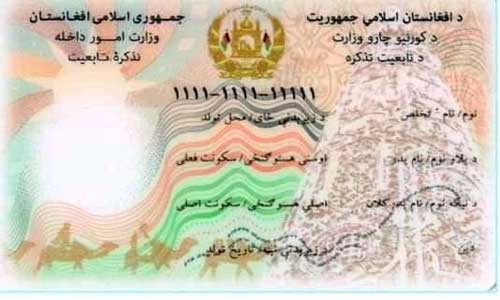The identity issues have been one of very hot topics in recent centuries. Although the history of identity issue could be ascribed simultaneous to the history of human life, it is one of the important characteristics of modern societies as a scientific approach. The recent world changes such as expansion of globalization discourse, growth of communicational technologies, economic transformations, migration phenomenon and other dependencies have fundamentally transformed the human societies.
These changes have permeated the whole sphere of social life. The changes that taken place in the human groups and networks in which individuals see their identities crystallized, and accordingly the construction of modern societies that allow these groups and networks to take birth also contributed to the rise of such changes.
Identity, in the past, was largely a definite and stable topic but it is constantly changing, evolving, and also led to crisis. Although this crisis, like other contemporary global phenomena, is a global phenomenon, the developed countries have almost crossed from this issue. Unfortunately, the undeveloped or backward countries such as Afghanistan just began to be faced with the problem. The disputes over the term of “Afghan” national identity card or the disputes over the term of Danishga or Pahand-toon in recent years could be considered as example of identity crisis in the country. Even, we have seen more radical movement who described the name of Afghanistan as discriminatory term to equally cover the entire ethnic groups. They repeatedly proposed the alternative word such Khorasan as unbiased title to equally cover the identity of all ethnic groups in the country.
In fact, national identity has always been considered as one of the most important and noteworthy issues in the country because the linguistic, ethnic, cultural and religious differences of people in Afghanistan on the one hand while the ethnic, religious and linguistic similarities of the people of this land with the neighboring countries on the other hand has raised a lot of troubles in the country. In addition, war and the other destructive conflicts in this country were barriers to constitute an integrative country. In general, the identity issue has not only caused social and political troubles but also considered as one of main reason behind countries’ backwardness and national divisions while there is no better experience or solution in the world other than unity based on diversity.
If we look at modern political literature, most thinkers who have researched about Afghanistan, agree that the issue of identity crisis in the country. They also agree that the nation-state and national identity have not yet been fully formed in this country and so there are still active ethnic-tribal divisions and the possibility of identity conflict in the country. They defined national Identity as series of cultural, historic and psychological features grown in the framework of political geography and commonly reflect certain common structure of political sovereignty, political culture and also common national will. But, currently, identity shaped is on the basis of different geographical, linguistic, religious and ethnic nature while ethnic identity aspect has a greater impact on bringing behaviors to life. Therefore, the Government and intellectual community of Afghanistan must find fundamental solutions to the issues that hinder the formation of national identity and cause ethnic divisions in the country. Undoubtedly, the identity crisis is the main factor to national weakness or national divisions and also ready ground for misuses of national enemies.
In order to reach national unity and national cohesion we need to use experience of those countries that successfully crossed from the issue. In fact, there is a clear consensus in today’s world stressing on unity on the basis of diversity. Unity in diversity can be defined as a concept of unity without uniformity and diversity without fragmentation that shifts focus from unity based on a mere tolerance of physical, cultural, linguistic, social, religious, political, ideological and/or psychological differences towards a more complex unity based on an understanding that difference enriches human interactions.”Unity in diversity” is a popular motto within and among nation states, and also in political and social movements but the deep feeling of unity is not formed by motto or speeches it is beyond words and also concepts. It must be truly believed, widely thought to school children and strongly be committed.
The history of this idea dates back to ancient time but in 1981 when the Apartheid of Republic of South Africa celebrated 20 years of independence and the theme of the celebrations was “unity in diversity” as a cynical attempt to explain away the inequalities in South African life but Anti-apartheid campaigners opposed these celebrations and called on runners of the Comrades Marathon to protest at the co-option of the event by wearing a black armband. The winner of the race, Bruce Fordyce, was one of those wearing a black armband. This term has since been incorporated into the preamble of the 1996 Constitution of South Africa as a central tenet of the new South Africa.
By and large, the survival, security and development of Afghanistan is seriously linked to national unity while national unity is not possible without putting an end to identity crisis in the country. Given the current global enlightenment and its inevitable impact on Afghanistan, it is neither possible to impose a single identity on all and nor possible to resolve it by words and motto. Meanwhile, the current situation is not in the interests of ruling ethnic groups as majority of them are suffering from poverty, war and destructions. It is high time to make a consensus amidst new generation of Afghanistan based on unity, equality and brotherhood.
Home » Opinion » The Implication of Identity Crisis on Afghanistan’s National Unity
The Implication of Identity Crisis on Afghanistan’s National Unity
| Mohammad Zahir Akbari

